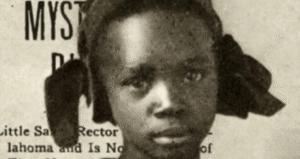Ever found yourself curious about how Canadians came to be affectionately known as Canucks? It’s a term that resonates deeply with Canadian culture and identity, and its history is as rich and varied as the country itself. Let’s delve deeper into this fascinating journey, exploring the origin, evolution, and cultural significance of the term “Canuck.”
Historical Roots and Etymology
The term “Canuck” is believed to have originated in the early 19th century. Theories abound regarding its etymology. One popular notion is that it stems from “Canadien,” a French term used to describe French Canadians residing in Lower Canada, now known as Quebec. Initially, “Canuck” was a way to distinguish these French-speaking Canadians from their English-speaking counterparts.
Alternative Theories
While the French origin is widely accepted, other theories suggest different roots. Some historians propose that it might derive from “Kanata,” a St. Lawrence Iroquoian word meaning “village” or “settlement,” which itself gave rise to the name “Canada.” Another interesting hypothesis is that it came from the Dutch or German word “Kanuk,” used as a neutral or affectionate term for Canadians.
Early Uses in Literature
The term “Canuck” began appearing in literature and correspondence as early as the 19th century. For instance, in 1835, a character named Johnny Canuck emerged in political cartoons and narratives as a representation of the Canadian everyman, akin to Uncle Sam in the United States. This character often symbolized Canadian resilience and ingenuity, attributes that remain linked to the Canuck identity today.
Linguistic Evolution
The phonetic evolution of “Canuck” is also worth noting. Phonetically, it fits comfortably within both English and French languages, which may have facilitated its adoption across linguistic lines in Canada. The melding of sounds and meanings could be seen as a metaphor for Canada’s bilingual nature, further embedding “Canuck” in the national lexicon.
The Evolution of “Canuck”
Over the decades, “Canuck” has undergone a significant transformation. It has evolved from a term of distinction to one of endearment and pride.
From Distinction to Unity
In its early usage, “Canuck” was a label that underscored the differences between French and English-speaking populations. However, as Canada grew into a multicultural nation, the term transcended its original context. By the mid-20th century, “Canuck” was embraced by Canadians of all backgrounds as a unifying identifier.
Pop Culture Influence
The term gained widespread popularity through its adoption in various cultural and commercial contexts. The Vancouver Canucks, a professional ice hockey team, played a significant role in popularizing the term. Established in 1970, the team’s name helped cement “Canuck” as a symbol of national pride and identity. Fans across the country, regardless of their team allegiances, often resonate with the name because of its inclusive connotations.
Media Representation
Beyond sports, “Canuck” found its way into media and entertainment, which helped solidify its place in popular culture. Canadian media often portrays Canuck characters as embodying quintessential traits like politeness, humor, and resilience. These portrayals have reinforced positive associations with the term, contributing to its widespread acceptance and usage.
Symbol of National Identity
Today, being called a “Canuck” is synonymous with being Canadian. It represents a shared sense of identity, unity, and belonging. The term is often used in sports, culture, and everyday conversation to celebrate the unique tapestry of Canada’s multicultural landscape.
In Sports
Sports have a unique way of bringing people together, and the term “Canuck” is no exception. Beyond the Vancouver Canucks, the term is used affectionately in various sporting contexts, from local hockey leagues to international events like the Winter Olympics. It embodies the spirit of teamwork and national unity, rallying Canadians under one banner.
Case Example: Olympic Games
At the 2010 Winter Olympics, hosted in Vancouver, the term “Canuck” gained international attention. Canadians proudly embraced the nickname as they cheered for their athletes, showcasing national pride and unity. The event served as a powerful reminder of how the term can unite the nation, transcending regional and linguistic differences.
Cultural Significance
In literature and media, “Canuck” often appears as a character archetype representing quintessential Canadian traits: politeness, resilience, and a sense of humor. From comic books to films, the “Canuck” character is a testament to the country’s diverse and inclusive society.
Literature and Art
Authors and artists have long used the Canuck identity to explore Canadian themes. Margaret Atwood, for example, often touches on themes of Canadian identity and culture, implicitly weaving the Canuck spirit into her narratives. Similarly, Canadian artists like Emily Carr have captured the essence of Canada in their works, reflecting the diverse landscapes and cultural richness that define the Canuck identity.
Common Misconceptions and Missteps
Like many cultural terms, “Canuck” is not without its misunderstandings and misuses. Here are some common misconceptions and how to address them:
Misconception: Exclusively French-Canadian
One of the persistent myths is that “Canuck” only applies to French-Canadians. While it may have originated to distinguish French speakers, today it is a term embraced by all Canadians, reflecting a broader national identity.
Misuse in Derogatory Contexts
At times, “Canuck” has been used in a derogatory manner, particularly in historical contexts. It’s important to recognize and address these instances, emphasizing the term’s evolution into a positive and inclusive identifier.
Historical Misuse
Historical texts sometimes used “Canuck” in a pejorative context, particularly during periods of tension between English and French-speaking populations. Today, the term’s reclamation as a positive identifier underscores Canada’s journey toward unity and mutual respect.
Practical Tips for Using the Term
For those new to Canadian culture or looking to understand the nuances of the term, here are some practical tips:
- Context Matters: Use “Canuck” in contexts where it celebrates Canadian identity, such as during national holidays, sports events, or cultural exchanges.
- Respectful Usage: Always use the term respectfully, acknowledging its historical roots and contemporary significance.
- Embrace the Diversity: Recognize that “Canuck” now represents a wide array of cultural backgrounds, and use it to foster inclusivity and unity.
- Educate Yourself: Understand the history and evolution of the term. Doing so will help you appreciate its significance and use it appropriately.
- Engage with Canadians: Talk to Canadians about what being a “Canuck” means to them. Personal stories and experiences can offer valuable insights into the term’s contemporary relevance.
Case Study: The Vancouver Canucks
The Vancouver Canucks have played a pivotal role in redefining the term on a global stage. Their journey from a regional team to an internationally recognized brand mirrors the evolution of “Canuck” itself.
Team Identity and Branding
The team’s branding efforts emphasize Canadian values and heritage. Their mascot, Fin the Whale, and their iconic logo represent the spirit of the Pacific Northwest and its indigenous heritage, reflecting a broader Canadian identity.
Indigenous Collaborations
The Vancouver Canucks have worked closely with Indigenous artists and communities to ensure their branding reflects a respectful and inclusive approach. This collaboration highlights the team’s commitment to honoring the diverse cultural backgrounds that define Canadian identity.
Community Engagement
The Vancouver Canucks actively engage with their community, promoting inclusivity and diversity. Their initiatives, such as “Hockey Is For Everyone,” highlight the importance of embracing all cultural backgrounds, reinforcing the unifying power of the “Canuck” identity.
Social Responsibility
Through various outreach programs, the team has made significant efforts to give back to the community, embodying the Canuck spirit of generosity and community service. These initiatives have helped solidify the term “Canuck” as not just a nickname but a representation of shared values and goals.
Celebrating Canadian Heritage
The term “Canuck” is a celebration of Canadian heritage, embodying the spirit of a nation known for its diversity, inclusivity, and unity. From its historical roots to its modern-day usage, “Canuck” has become more than just a nickname; it’s a symbol of national pride that continues to unite Canadians across the globe.
Whether you’re cheering for the Vancouver Canucks, reading a Canadian novel, or simply enjoying a conversation with a fellow Canadian, the term “Canuck” serves as a reminder of what it means to be part of this great nation. It’s a testament to the unique mosaic of cultures that make up Canada, each contributing to the vibrant tapestry of shared identity.
Embrace “Canuck” as a reflection of this beautiful nation, its people, and its values. Understanding its history and evolution allows us to appreciate the depth and significance behind this endearing term, fostering a sense of belonging and pride among Canadians everywhere.




